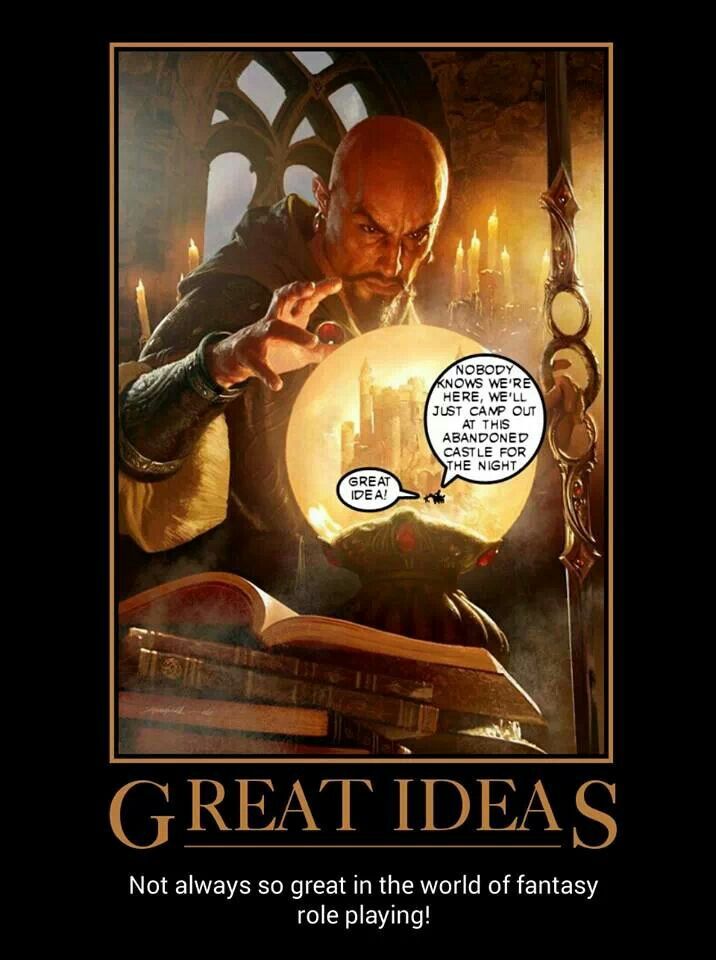Spanning the entire breadth of the fantasy genre, from literature to movies and games, magic is nearly ubiquitous. Magic adds mystery, convenient plot devices and the fantastic and, is such a staple of the genre that it can be hard to imagine fantasy without it. That being said, magic is also exactly that: Magic! Used carelessly, it becomes an endless “deus ex machina” and unravels any internal consistency in the setting at the speed of a “magic missile”.
So, how can you write magic into your fantasy world in an awesome way?
I have no idea, but I have been pondering this for some time and I would like to share the reflections I have made thus far for my own world building project.
First of all, when I say “magic” I’m not just thinking about magic in the narrow sense of “what a wizard does”. Instead, I’m considering it in a broader sense that contains most (or all) of the supernatural tropes found in fantasy.
So why even start with magic this early in the world building process? Magic (in the extended sense of “all supernatural phenomena”) is where so much of the “fantasy” in a fantasy setting comes from. In other words, magic should influence every part of the game world and is a great way to lay the foundation for your fantasy world building.
In general, I find that there are different challenges for different fantasy mediums. Specifically between literature and movies on one side and games on the other.
The first category is much more vulnerable to having its internal consistency broken by poorly written magic with no suspension of disbelief as a result. How many times have you heard “why didn’t just Gandalf use more magic” or “why couldn’t just the eagles take Frodo all the way”? Don’t get me wrong – I love Lord of the Rings, but they do kind of have a point.
For games, on the other hand, there seems to be a tendency for magic to be much more prevalent and nearly always accessible to the player(s). I assume this stems from the notion that it is very poor game design to have players see cool things without being able to DO cool things. In other words, the need for player agency very quickly outweighs the need to have the game world be internally consistent.
The result is often a world that is so saturated with magic, that the game world simply stops making sense. How does the Forgotten Realms still look like late medieval Europe despite magic being so prevalent?
So, what does it even mean to have the game world be internally consistent in regards to magic? Well for me, this means that the world-builder addresses the socio-economic-political implications of magic’s existence.
Consider something as simple as a “create water” spell. In an early agrarian civilization the consequences of this would be monumental. Consider how much effort has been spent (even to this day) to provide water for crops in the form of irrigation systems. The result would be dramatically more effective agriculture, which in turn, means that more citizens can perform specialized labor, become soldiers, scientists, artists etc. This would accelerate the development of the civilization by centuries. Just from a “create water” spell.
Currently I am doing world building for a fantasy setting in which I intend to set several gamebooks (using the SKALD game engine). I’m basing the setting partially on an old pen-and-paper RPG campaign I ran years ago and one important characteristic of this setting is that it’s a human-centric world where magic exists, but is rare, poorly understood and powerful but unprecdictable.
As a starting point I’m picking some of the following fundamental design tenets of magic:
- Magic is rare but powerful and is recognized as such in in the world.
- Magic is poorly understood, esoteric and shrouded in mystery.
- Because of its perceived power, magic attracts either political power OR paranoid persecution.
- Therefore, magic is a fundamental force in shaping history. Think the role of religion in medieval Europe. Now imagine in the Catholic Church had fireballs.
- Magic comes at a personal cost to the user. It corrupts both the mind and the body.
- The use of magic in the world is restricted and reserved only for the very rich and powerful.
So far, I can see myself building a setting around this somewhat restrictive view of magic. I especially feel the “magic corrupts” part adds some checks and balances. Also, I find the view of magic being restricted and unsanctioned magic being persecuted to be interesting. I feel I’m beginning to see the outline of a central political entity in my campaign setting: Perhaps somewhat like a magic-infused, late period Roman Empire.
This starting point might be somewhat on the path of magic being so esoteric that it’s effectively inaccessible to the player characters. Thus falling in the trap of letting the player see, but not do, cool things. However: Since I intend to use this setting primarily within the scope of gamebook-style RPGs, I suspect that the tolerance for inconsistent magic is lower than in most games (more akin to books and movies). This means that at this point I would prefer to err on the side of making magic a bit too scarce whilst maintaining an internally consistent game world.
I’ll start scribbling away and try to translate this into a workable setting of sorts. We’ll see how it goes, and I’ll be posting the result here shortly! Stay tuned and feel free to get in touch (with Scape-IT and SKALD on Twitter) if you have questions or comments!


